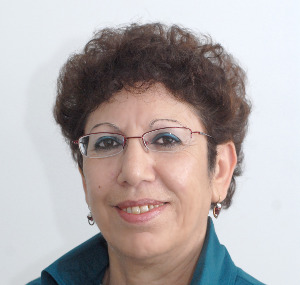Israeli professor, Varda Shoshan-Barmatz is one of only a few non-North Americans to win a grant from the Leukemia & Lymphona Society to develop antidotes for blood cancers.

Varda Shoshan-Barmatz wanted to be a physician, but after two months in medical school she revamped her career goals. “I cannot look at blood,” she admits with a laugh.
It’s a little ironic then that just last month the 60-year-old professor from Ben-Gurion University (BGU) of the Negev won a three-year, $600,000 grant from the US Leukemia & Lymphoma Society to develop target-specific drugs for one of the most common and incurable forms of blood cancer.
These drugs will be based on her patented peptide that zeroes in on specific cancerous cells while leaving healthy cells alone. As opposed to conventional chemotherapy drugs, which are non-specific and toxic to normal cells, Shoshan-Barmatz’s therapeutic peptides have great potential to vanquish diseased cells while avoiding the serious side effects of conventional chemotherapy.
The development of the peptide last year also gained her a slot as one of the 50 most influential women in Israel in Lady Globes, published by Israel’s Globes financial daily.
The grant “encourages us that we’re in the right direction, and that we are able to not just develop concepts but to make the next step that companies are looking for,” she tells ISRAEL21c. Only 10 percent of Leukemia & Lymphoma Society research grants are awarded outside of the United States, and about one-third of those go to Canadians.
Canada vs Israel
Shoshan-Barmatz could easily have become a Canadian researcher. After completing post-doctoral work in Toronto when she was 28, she was offered leading positions in the emerging field of molecular biology. However, she chose to return to Israel. “I am a Zionist, and I don’t feel ashamed to say it,” she says. “I do everything for my country.”
She is passionate about the Negev desert region, which comprises 65 percent of Israel. “We don’t need water to be successful in high-tech and biotech,” says Shoshan-Barmatz, who lives near Beersheba, the region’s unofficial capital.
Although she has studied and taught extensively in Canada, the US, Scotland and Germany, she always returns to the Negev. That’s where she spent the happiest years of her childhood, having emigrated from Morocco with her family at age three.
Shortly before graduating from an agricultural high school, her class had a visit from Prof. Yoash Vaadia, head of biology at what was to become Ben-Gurion University (BGU). She impressed Vaadia with her answer to a mathematical riddle, and he invited her to lunch in the faculty dining room.
The following fall, Vaadia helped Shoshan-Barmatz gain admission to BGU two months into the first semester, after she had left medical school.
The future life sciences professor earned her master’s in physiology and biochemistry jointly from BGU and the Hebrew University, and her Ph.D. at Weizmann Institute of Science in 1978. She went on to study in Madison, Wisconsin, and to a fellowship at the Muscular Dystrophy Association of Canada before fielding several job offers abroad and at home.
A role model for egalitarianism
“I decided that I wanted to be among the first generation building Ben-Gurion University,” she recounts. Since 1982, she has mentored 58 graduate students. About half are women – many of them also from North African and Middle Eastern Jewish families where gender roles tend to be strictly traditional.
“The division of responsibilities between women and men in this community is not fair,” she maintains. “I realized I have to be a role model to prove to these women that they can find a way to show their husbands they are doing important work. If you have to wake up five times a night to tend sick children, you can’t do it.”
This egalitarian model is firmly in place in her home. Husband Moshe, a lawyer for the Beersheba municipality, decided to forgo a private practice so he would be free to accompany his wife on overseas academic sabbaticals. “He sacrificed some of his career for me,” she relates. “He understands the importance of what I do.”
The couple’s elder daughter studies biology and physics at Tel Aviv University. The younger one is a medical student at BGU.
In addition to her research and teaching, Shoshan-Barmatz is the founding director of BGU National Institute for Biotechnology in the Negev (NIBN). Established in 2004, NIBN aims to bridge the gap between science and industry, and to attract more biotech to the Negev. It’s staffed by 22 hand-picked scientists from several countries, and is overseen by an international advisory committee that includes three Nobel laureates.
Last November, the research center was incorporated as NIBN Ltd., after securing an eight-year budget of $90 million, jointly provided by the university, the Israel government, and a Swiss donor. Such an arrangement is unique in Israel.
To keep up with all her responsibilities, Shoshan-Barmatz often works 17 hours a day. “I don’t feel the time because I have so much to do,” she says with a laugh. “I do my ‘hobby’ and get paid for it.”













